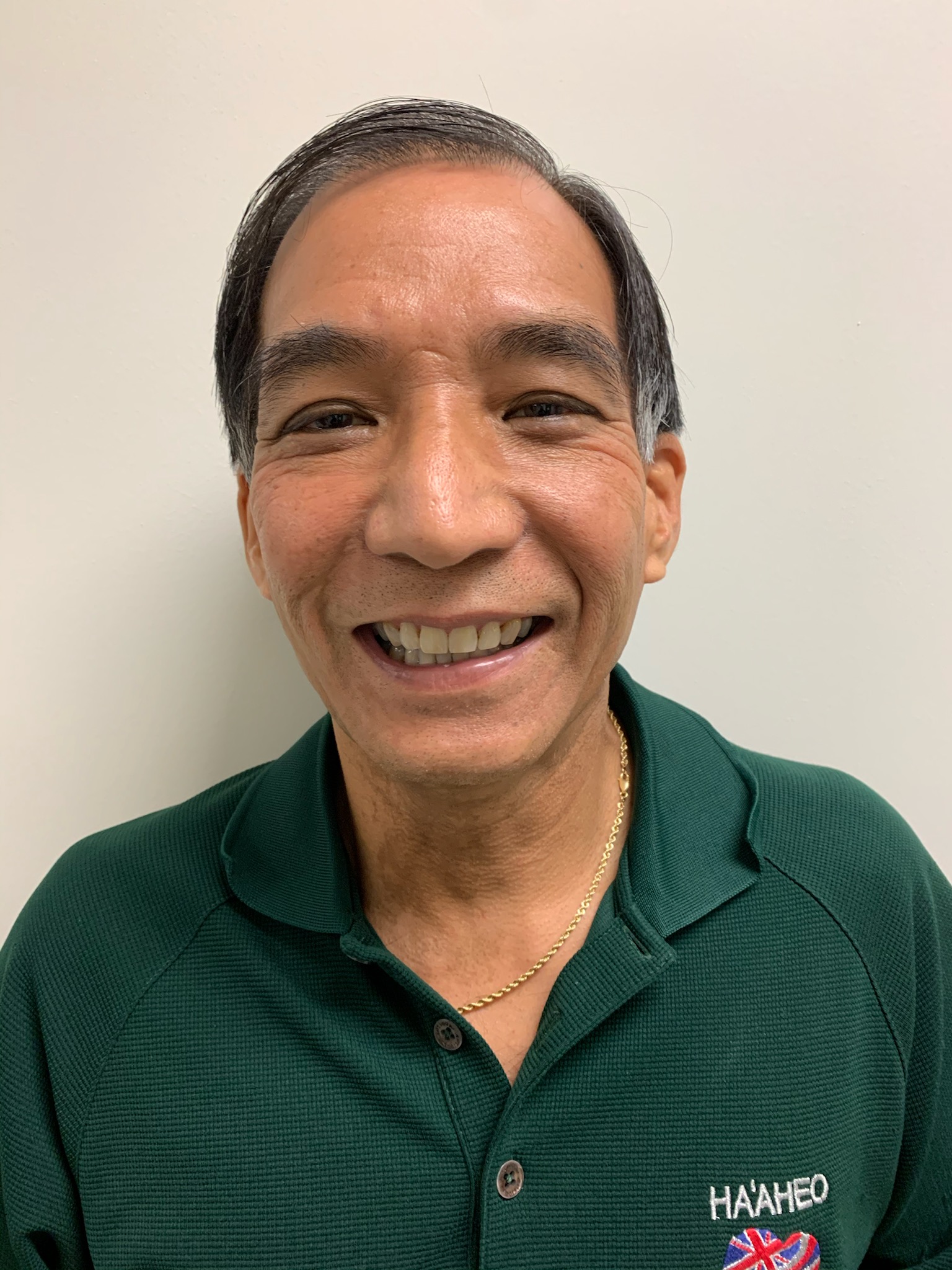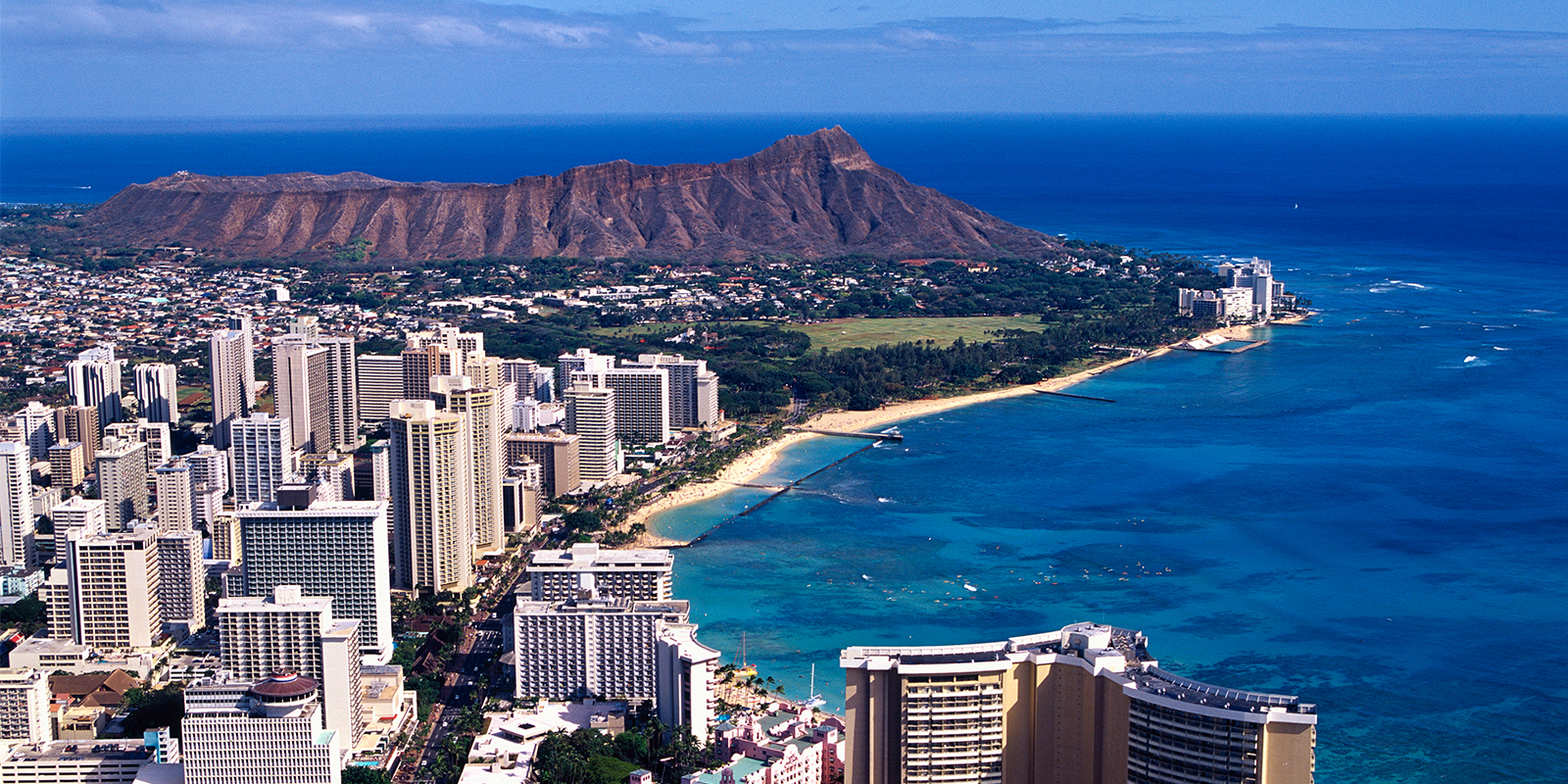
Over the past 11 months, AFSCME members have been fighting on the front lines of the coronavirus pandemic, keeping our country running often at great personal risk. Winning that fight means having co-workers and leaders willing to speak out for the tools we need to do our jobs safely and effectively.
One of those people is this month’s Never Quit Service Award winner, Hawaii’s Peter Oshiro, a member of Local 152 (HGEA).
Nominated by Devin Madan, a Maui-based public health safety inspector and fellow member of Local 152, Oshiro has fought to ensure that his co-workers have the personal protective equipment they needed to do their jobs when the pandemic hit Hawaii.
Madan and his fellow inspectors who work in the Food Safety Branch of the Environmental Health Service Division of Hawaii’s Department of Health are responsible for not only ensuring that Hawaii’s restaurants are operating safely and sanitarily, preventing the spread of foodborne illnesses and viruses, but that everything from tattoo parlors to mortuaries to swimming pools are following public health guidelines.
It’s a face-to-face job, requiring inspectors visit establishments across the state.
When the pandemic hit, though, inspectors like Madan didn’t have the PPE they needed to do in-person inspections. What’s more, they were given a whole new set of COVID-related rules to enforce.
That’s where Oshiro, an environmental health program manager, who’s also an associate HGEA member because he believes in the value of his union, stepped in. He refused to send his employees out without the N95 masks and other sanitary equipment they needed. When his superiors balked at the price of the masks, Oshiro paid for them out of his own pocket.
“Peter was really good,” Madan recalls. “He was focused on protecting us and making sure others were following precautions, too.”
As the pandemic unfolded, Madan says that Oshiro’s policy was: “I’m not doing anything unless our workers are safe.”
According to Madan, Oshiro also fought for clear guidance on how to interpret new COVID-19 rules and regulations, such as how to limit occupancy to safe levels and ensure people are wearing masks.
“He’s always been an advocate. He gets us what we need to do our jobs,” says Madan. “For food safety, we need clear guidance. He’s really good about helping us interpret operational definitions and being transparent,” both to workers and to the public.
Oshiro, who has been an environmental program manager for nearly 11 years, says, “If I don’t have employees who are healthy and positive, you cannot have an effective workforce. I have to make sure employees are protected.”
For workers who prevent the spread of disease and who need to see the locales they’re inspecting, the pandemic posed a unique challenge.
Oshiro recalls, “Once the state locked down everybody, I pulled staff from the field. That was in March. We made sure that until everyone was cleared to go back in the field, my staff was not doing inspections.”
Instead, in order to allow businesses to open safely, Oshiro says, “We used technology and smartphones to do virtual inspections. We didn’t want to hold up industry. We wanted to get people back to work.”
Because Hawaii’s economy is so dependent on tourism, reopening businesses safely has been crucial. To prepare for his staff’s return to field work, Oshiro wanted to be prepared.
“We’re in a very high-contact job. We made sure people had real PPE, including wipes, spray disinfectants and face shields. This is what my staff told me they needed,” says Oshiro.
While Oshiro and his team have continued to do their jobs throughout the pandemic, to keep Hawaii running, they, like so many public service workers across the country, are facing furloughs and even layoffs due to the economic ravages of the COVID-19 pandemic.
That’s why the top priority of the Biden-Harris administration and the incoming Congress must be delivering robust aid to states, cities, towns and schools. Rather than cutting public services, Oshiro reminds us: “We’re the people who’re going to prevent disasters from happening.”
In Hawaii – and across the country – it’s time to adequately fund the front lines.
